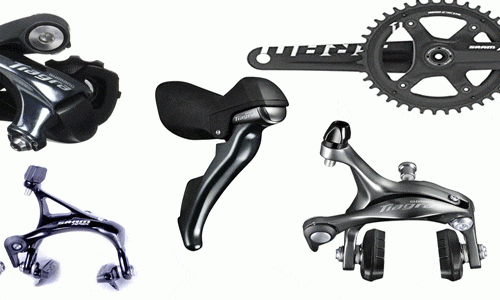Mountain biking is a huge amount of fun, and there’s nothing like hitting a trail fast and enjoying nature. Here at Bike Test Reviews, we get asked some great questions from our amazing readers, and one that comes up often is, How much do mountain bikes weigh, and does it matter?
Mountain bikes can hugely vary in weight depending on the type of bike and much more. The weight, to an extent, does matter.
In this article, were going to be telling you everything you need to know about mountain bike weight by discussing:
- Factors That Affect Mountain Bike Weight
- Mountain Bike Weights
- Does Mountain Bike Weight Matter?
- Tips To Lighten Your Mountain Bike

Factors That Affect Mountain Bike Weight
Before we get into telling you about mountain bikes and how much they weigh, it’s important to understand what affects the weight of a mountain bike. Here’s what you need to know:
Type Of Bike
Mountain bikes come in many different types. You get cross-country bikes designed for light off-road terrain, trial bikes for mixed terrain, enduro bikes for technical off-road riding, and downhill bikes for downhill racing. The more technical ability required, typically, the higher weight.
Frame Material
Mountain bike frames are made from many different materials. They are made from steel, aluminum, titanium, and carbon fiber.
Steel is the heaviest, then aluminum, titanium, and the lightest is carbon fiber.
Hardtail Or Full Suspension
Hardtail mountain bikes are generally lighter than full-suspension mountain bikes.
This is because they have fewer components and, in turn, less weight. However, heavier full-suspension bikes do generally have more ability.
Components
Then we have the level of the components. High-end racing components are very lightweight compared to fairly heavy budget components.
Although it might not sound like it will make much difference, it can be a 5 kgs difference overall.
Bike Size
Although it doesn’t make a huge difference, the size of the bike also affects the weight. If you have a larger XXL frame, it will weigh much more than an XS frame.

Mountain Bikes And Weights
Here’s for the fun bit. Let’s start taking a look at some different mountain bike weights depending on the type and level of components.
We can only use rough estimates because there are so many different types of bikes from different brands.
Components Levels
| Bike Type | XC (Cross Country | Trails | Enduro | Downhill |
| Budget | 10kg to 12kg | 11kg to 13kg | 12kg to 15kg | 15kg and above |
| Mid Range | 9kg to 11kg | 10kg to 12kg | 11kg to 14kg | 14kg and above |
| High End | 8kg to 10kg | 9kg to 12kg | 10kg to 13kg | 12kg and above |
Bike Type
| Bike Type | XC (Cross Country | Trails | Enduro | Downhill |
| Full Suspension | 10kg to 12kg | 11kg to 13kg | 12kg to 15kg | 15kg and above |
| Hard Tail | 8kg to 10kg | 9kg to 11kg | NA | NA |

Does Mountain Bike Weight Matter?
A lot of cyclists overthink the weight of a bike. It does matter but not as much as you might think. We only really recommend worrying about weight if you are racing because that’s where it can make a big difference. For recreational riding, it doesn’t really matter.
The difference between a 10kg mountain bike and a 15kg mountain bike is big, and 5kg is huge. This is the same weight as 5 liters of water which is 10 small full cycling bottles or 7 medium-sized ones.
As far as performance goes, this could make you 1mph quicker, depending on the course you are on. Although this may sound like a lot, it’s the difference between getting to the cafe 9 minutes earlier on a two-hour ride.
If the difference is, an extra kilo on a bike isn’t going to make you much slower. It might lose you an extra 0.1mph, but that’s only going to make a big difference in a race. That’s not enough to worry about on a social ride.
Ability Means Extra Weight
It’s important to understand that when it comes to mountain bikes, weight isn’t always a bad thing.
An XC bike may be very light, but it isn’t going to have the ability of a heavy downhill bike. What’s important to understand is that the more capable the components are, the more they weigh.
An XC bike will generally have only front suspension, which will travel around 100-120mm, while a downhill bike will have front and rear suspension, which can travel as much as 200mm.
In a downhill race, it’s better to have heavier components more suited to the terrain than a lighter bike.

Tips To Lighten Your Mountain Bike
If you want more performance, then you can do a few things to lighten your bike up and give yourself the performance you might be looking for. Here’s what we recommend:
Upgrade Your Components
Parts such as suspension and gearing can add a lot of weight. You can upgrade to lighter, better-performing components, saving you weight and making you a little quicker.
Lighter Wheels And Tires
Mountain bikes, as standard, generally come with heavy wheels and tire setups. If you switch to a lightweight aluminum or carbon fiber wheelset with performance tires and tubeless sealant, you can save a huge amount of weight.
Don’t Need It? Don’t Take It
It’s easy to end up taking way more on a ride than you might need, and all that extra stuff adds up. We highly recommend that if you don’t need it, don’t take it.
A few things I see people take extra are power banks, extra clothing, and way too many spares.
Use A Lighter Frame
If you want to save a serious bit of weight, consider upgrading the frame to a lighter version. If you have a steel frame, you could transfer your parts over to a carbon fiber frame or lightweight aluminum to save nearly a kilo.
A Final Thought
Mountain bikes can weigh as little as 8kg or as much as 15kg. Although a lighter bike can make you quicker when it comes to mountain bikes, sometimes the bike needs to be heavier to have more ability on off-road terrain.

Robbie Ferri has spent years working in a bike shop, has worked with industry leading brands on product creation, has been a semi pro athlete, and is a fully qualified strength and conditioning coach. He has broken World Records, bikepacked all over the World and raced ultra distance at a top-level.


